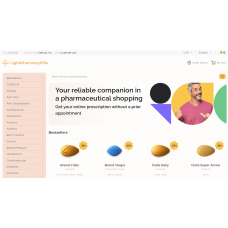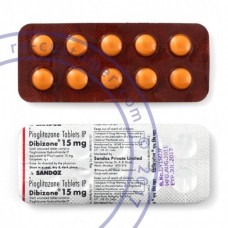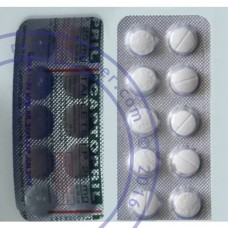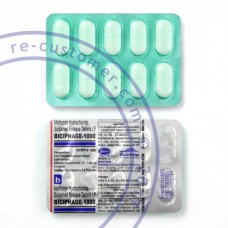
Nowadays diabetes, unfortunately, is not uncommon. "Diabetes" is translated from Greek as "leakage" and "diabetes mellitus" literally signify "sugar loses". This is the key feature of the ailment an increase of glucose in the organism and removing it with urine.
Glucose is the key power source for humans. It is also the main food for the brain and in many ways it affects many psychological processes. At a low level of glucose processes that require mental efforts (eg, self-control, making difficult decisions, and so on) may be affected.
According to the vast majority of doctors, the main factor of the sickness is a genetic predisposition, but it also might not be hereditary. The reason of diabetes is incapability of an organism to form the necessary quantity of insulin or if insulin`s quality isn`t proper. The fundamental task of this chemical substance is to deliver glucose into cells. However, insulin is responsible not only for mastering of sugar, but also for fat and protein metabolism, so a diabetic diseased sooner or later acquire severe metabolic disorders.
Medics distinguish 2 main kinds of the ailment. Insulin-dependent (I type), formerly known as juvenile, and insulin independent (II type).
Type I transpires more frequently in people under the age of 30 years, from it suffer in an average 10-15% of all the patients. Patients with type II make up the vast majority of all affected by this ailment (approximately 85%). Surplus weight and diabetes almost always go together. Only 15 percent of all diabetics have normal weight, the rest suffers from adiposity. Type I is a state in which insulin is absent completely. In this case, patients are force to, in addition to other treatments, use injections of insulin. This category of the ailment is more typical for kids and the youth. Type II progresses slowly; signs of it are implicit or completely absent. This state does not require insulin injections. This kind of the sickness is typical for grown-ups and the elderly.
Check yourself for the presence of the sickness (or identify if you are at risk) is possible before the blood test will be conducted. Sufficient is to heed to your body. What signs and signals should alert you?
- Excessive thirst, increased urination. To get rid of the excess glucose, kidneys have to work really hard; thereby a diseased frequently goes to the bathroom, especially at night. Increased thirst stems from the fact that the body wants to fill fluid loss
- Itchy skin, hyperpigmentation, skin coarsening. This defect occurs as a result of dry skin and impaired circulation. Howbeit, even with normal glucose index in humans may already be insulin insusceptibility
- Slow wound healing. Excessive sugar ruins blood vessels, hinders blood flow to the site of the wound and inhibits healing
- Fungal infections (inclusively persistent vaginal infections in females). Fungi and bacteria feel cozy in an environment rich in sugar
- Poor eyesight. Sick with diabetes are prone to impaired vision, feeling of floating objects and flashes before the eyes. High index of glucose affect the shape of the crystalline lens. After the normalization of glucose, this symptom should vanish
- Numbness, burning sensation in the hands and feet, swelling. Diabetes can harm nerve endings. If such signs have appeared recently, the control of sugar allows you to get rid of them
- Fast weight loss. On the background of diabetes may occur not only rapid weight gain, but as well its rapid loss
- Chronic fatigue. This hidden sign of diabetes many try to explain by high workload, lack of sleep, poor diet, stress. In fact, excessive tiredness and fatigability indicate that muscles and the brain do not get enough glucose
- Increased appetite and cravings for sweets. For the proper functioning the brain requires glucose. After eating, the concentration of glucose in the blood increases. But if insulin sensitivity is violated, glucose doesn`t enter the brain, and turns into fatty tissues, which further increases the insulin insusceptibility. But the brain still requires food, especially sweet. Therefore, people eat more and gaining extra weight
- Adiposity. Individuals with obesity either already have diabetes mellitus, or will soon acquire it, if they do not normalize the weight. Corpulence reduces the responsiveness of cells to insulin
Regularly verify your sugar level if your age is over 40, your weight exceeds the norm, among your relatives are diabetics.
Everyone should check the sugar level once a year. A normal sugar level is no more than 5.5 mmol/ l.
Living with diabetes has several key elements. You must perform scheduled daily monitoring of the sugar levels with a measuring device (glucometer). Measurement results must be regularly recorded in a diabetic diary, which gives knowledge about how the body reacts to certain events, what happens when injected a bigger or smaller dose of insulin or change the dosage of hypoglycohaemic pills. This data is really important for the health care provider; it helps to draw conclusions on the correctness of the selected insulin therapy. Really important are periodicals visits to the endocrinologist.
The underlying goal of the treatment is to achieve maximal compensation of improper metabolism, chiefly carbohydrates. The indicator of a positive progression is the normalization of blood sugar to parameters that are close to normal. Given the originality of the ailment in every individual the proper treatment may prescribe only a physician.









